A Blueprint for Multinational Advanced AI Development
The Oxford Martin
AI Governance Initiative

The Challenge
Artificial intelligence (AI) has the potential to bring profound benefits to all. AI can improve medical care, legal services, education and scientific innovation. AI systems also have the capacity to improve the productivity of workers individually and of economies as a whole.
However, AI also has the potential for harms, such as displacing workers, reducing transparency, reinforcing societal biases, and threatening public safety. AI poses substantial risks both from unintended consequences and from deliberate misuse by malicious actors.
The social and political challenges posed by advanced AI are in the news daily, but rigorous work to understand these challenges and to deliver helpful interventions remains sparse. Furthermore, while the nature of future AI capabilities and their associated risks are difficult to predict, it is vital to analyse how we can safeguard against potential future harms now.
The Oxford Martin AI Governance Initiative aims to understand and anticipate the lasting risks from AI through rigorous research into the technical and computational elements of AI development, combined with deep policy analysis.
The work will include understanding the form and frameworks of national and international AI regulation, exploring the technological feasibility of using AI and machine learning technologies themselves to facilitate the governance of AI, and investigating how the AI industry can and should cooperate with international institutions for public benefit. The Initiative’s research will then be used to support decision-makers from industry, government, and civil society to mitigate AI’s challenges and to realise its benefits.

Subscribe to receive the latest news and updates from the AI Governance Initiative
publications


Agentic Inequality
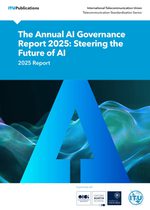
The Annual AI Governance Report 2025: Steering the Future of AI

Can we standardise the frontier of AI?

Looking ahead: Synergies between the EU AI Office and UK AISI
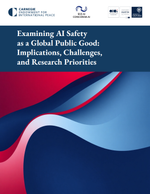
Examining AI Safety as a Global Public Good: Implications, Challenges, and Research Priorities
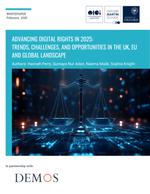
Advancing Digital Rights in 2025: Trends, Challenges and Opportunities in the UK, EU and global landscape
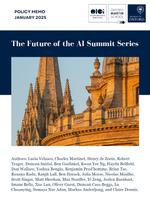
The Future of the AI Summit Series
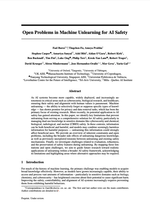
Open Problems in Machine Unlearning for AI Safety
Videos
'Back to the future? The promise and peril of historical analogies in AI governance' with Dr Julia Morse
AI Governance Initiative Event: Governing through the cloud: the role of compute providers in AI regulation
'The promise and peril of AI in criminal justice' with U.S. Deputy Attorney General Lisa O. Monaco
In the press
AI ‘could be last technology humanity ever builds’, expert warns in ‘doom timeline’
From “black box AI” to operational AI transparency: How the HAIP Reporting Framework can play an important role in global AI governance
Can a Series of Global AI Summits Actually Shape the Rules that will Govern the World’s Most Powerful Technology?
News
Oxford Martin AI Governance Initiative Hosts Pre-Summit Dialogue in New Delhi
The Oxford Martin AI Governance Initiative (AIGI) convened a high-level dialogue in New Delhi ahead of the India AI Impact Summit 2026.
Importance of AI international reporting regimes highlighted at key summits
May was a busy month for the Oxford Martin AI Governance Initiative, with programme director Professor Robert Trager playing key roles at two leading AI summits in South Korea and Switzerland.
US Deputy Attorney General launches AI criminal justice initiative
America's Deputy Attorney General (DAG) Lisa O. Monaco announced the launch of the Justice AI initiative that focuses on the use of AI in the American criminal justice system.
Jobs will be automated, but not because of the latest Generative AI
Everyone is worried about Artificial Intelligence. From writers in Hollywood to computer programmers, recent advances in technology are causing concern about what Generative AI is going to mean for the future of work, our society and the wider world. Is there nothing machines will not be able to do?
Generative AI can potentially disrupt labour markets, say Oxford experts 10 years after ground-breaking study
Ten years ago, two experts in AI from the Oxford Martin School predicted that almost half of jobs were at risk of automation. In a new upcoming study, Professors Carl-Benedikt Frey and Michael A Osborne now say that while Generative AI has increased the scope of automation further, it will also make many jobs easier to do for people with lower skills.
New programmes to focus on challenges of Net Zero, AI and critical metals
The Oxford Martin School has launched three new research programmes focussed on solving a diverse set of critical challenges: sourcing the critical metals needed for the energy transition, achieving global Net Zero, and managing the risks of Artificial Intelligence.
Keep in touch
If you found this page useful, sign up to our monthly digest of the latest news and events
Subscribe